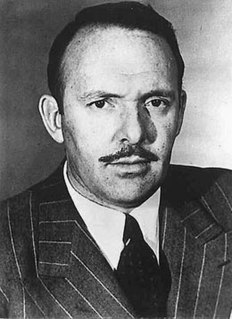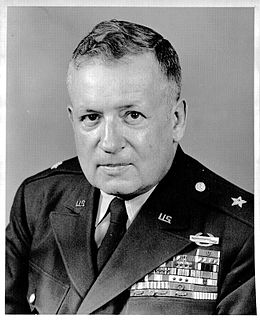A Quote by Robert Ruark
If a man does away with his traditional way of living and throws away his good customs, he had better first make certain that he has something of value to replace them.
Related Quotes
Wherein lies a poet's claim to originality? That he invents his incidents? No. That he was present when his episodes had their birth? No. That he was first to repeat them? No. None of these things has any value. He confers on them their only originality that has any value, and that is his way of telling them.
An officer should never speak ironically or sarcastically to an enlisted man, since the latter does not have a fair chance to answer back. The use of profanity and epithets comes under the same headings. The best argument for a man keeping his temper is that nobody else wants it; and when he voluntary throws it away, he loses a main prop to his own position.
At the utmost, the active-minded young man should ask of his teacher only mastery of his tools. The young man himself, the subject of education, is a certain form of energy; the object to be gained is economy of his force; the training is partly the clearing away of obstacles, partly the direct application of effort. Once acquired, the tools and models may be thrown away.
Man is concentric: you have to take fold after fold off of him before you get to the centre of his personality. You must get below his animal nature, habits, customs, affections, daily life, and sometimes go away down into the heart of the man, before you know what is really in him. But when you get into the last core of these concentric rings of personality you find a sense of the infinite-a consciousness of immortality linked to something higher and better.
Wherein lies a poet's claim to originality? That he invents his incidents? No. That he was present when his episodes had their birth? No. That he was first to repeat them? No. None of these things has any value. He confers on them their only originality that has any value, and that is his way of telling them." Mark Twain "...every literature, in its main lines, reflects the chief characteristics of the people for whom, and about whom, it is written.
And, she was able to tell herself with some satisfaction, the man in question - one Colin Bridgerton - felt precisely the same way.... ....His earth shook, his heart leaped, and Penelope knew without a doubt that his breath was taken away as well. For a good ten seconds. Falling off a horse tended to do that to a man.
The tyrant, who in order to hold his power, suppresses every superiority, does away with good men, forbids education and light, controls every movement of the citizens and, keeping them under a perpetual servitude, wants them to grow accustomed to baseness and cowardice, has his spies everywhere to listen to what is said in the meetings, and spreads dissension and calumny among the citizens and impoverishes them, is obliged to make war in order to keep his subjects occupied and impose on them permanent need of a chief.



































